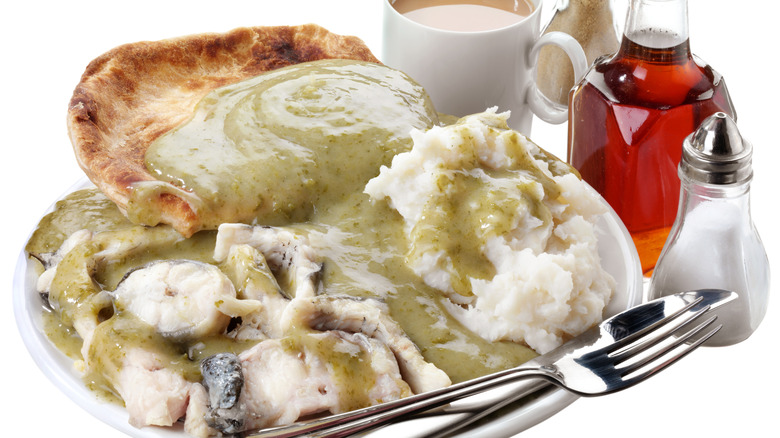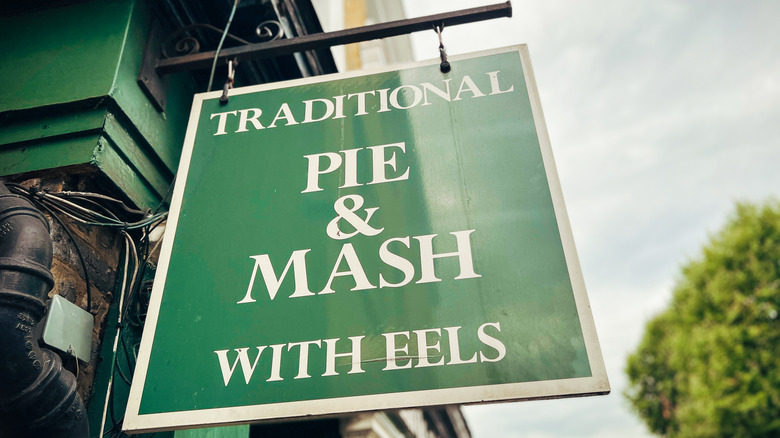How Eel Pie Became The OG Fast Food Of London
While the U.K. today has many of the same fast food restaurants as we do in the U.S., in addition to Popeyes, Starbucks, and McDonald's, it also has a few home-grown chains of its own such as the West Cornwall Pastry Company, Greggs, and Chaiwalla. Predating these, however, is the fish and chip shop, a 19th-century institution, but the very first type of fast food may well have been the eel pie that may have been a favorite of King Henry VIII (although it's possible that this info is apocryphal; the British equivalent of "George Washington slept here").
Eels as a favorite British foodstuff predate that merry murdering monarch by a few centuries, though — by the time of the Norman Conquest, many people even paid their rent in eels, which were abundant in rivers such as the Thames. By the 19th century, the Thames had become so polluted as to kill off most other types of fish, and yet the adaptable eels still thrived and eels (whether in pie form or on their own) were sold by street vendors throughout the city. Eel pie and mash shops did a booming business and even lent their name to a place called Eel Pie Island (Charles Dickens gives it a shoutout in "Nicholas Nickleby," in case the name rings a faint bell.)
Eel pies aren't so easy to come by these days
Even at the height of eel pie popularity, production was starting to feel the impact of rising pollution levels and a falling eel population. While eels may have started off the 19th century as a cheap and abundant source of meat, some Victorian-era eels were already being imported from the Netherlands. Today the British eel population is pretty much in freefall, with some reports indicating that levels have dropped by as much as 95% since the 1980s. Eel pie shops, which now source their eels from Northern Ireland, are themselves in short supply — as of 2023, the original London eel pie chain M. Manze was down to its last three locations.
It may not be the lack of eels alone that has led to a decline in eel pie popularity. Apparently, eel pie was a thing in the U.S. once too, some 200 or more years in our past, but when our native eels became scarce we stopped eating the stuff rather than relying on imports. Rather than seeing the eel shortage as driving the drop in demand, M. Manze director Rick Poole (great-grandson of the man who founded the shop) feels that gentrification is partly to blame. As he tells the BBC, today's Londoners are "increasingly squeamish [and] wary of trying eel." Poole, however, remains optimistic, adding that he feels eels (and eel pies) will "still stand up the test of time" as the 21st century slithers onwards.

